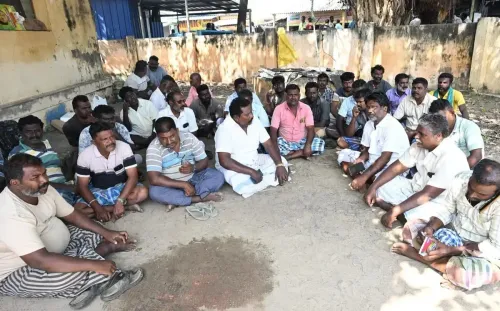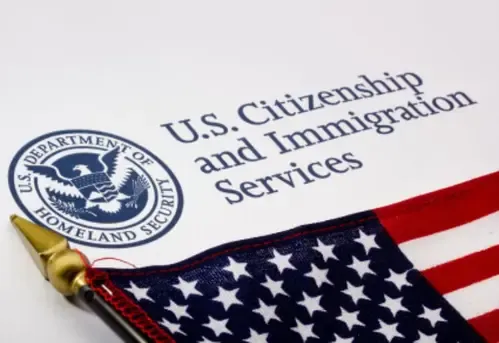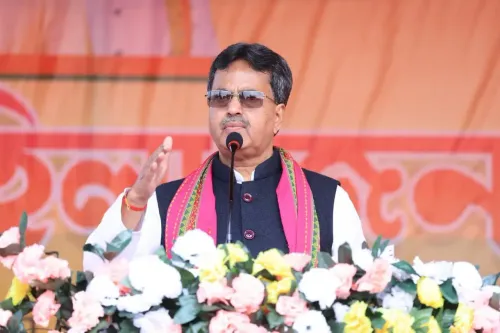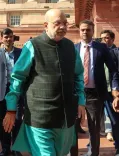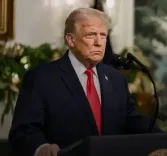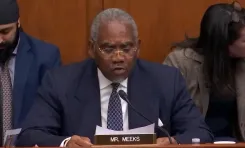Is There Cash at the Judge's Home? VP Dhankhar Calls for FIR Registration
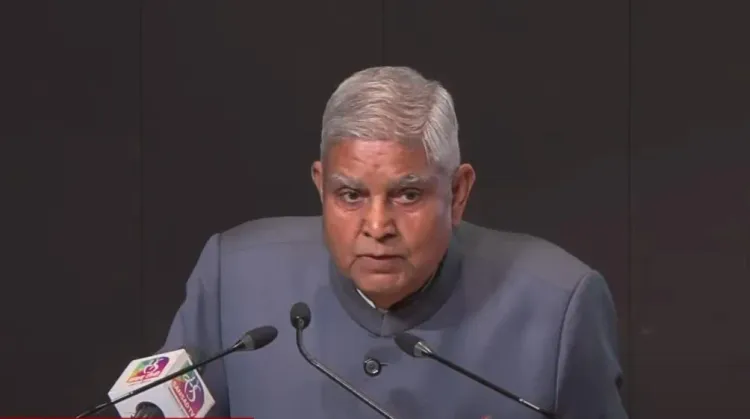
Synopsis
Key Takeaways
- Vice President Dhankhar calls for FIR to investigate cash found at a judge's home.
- Emphasis on judicial accountability and the rule of law.
- Public demands absolute truth regarding the incident.
- Importance of transparency in democratic institutions.
- Judicial independence is crucial for democracy's survival.
New Delhi, May 19 (NationPress) In a pointed critique of the judiciary concerning the troubling ‘cash at judge’s residence’ incident, Vice President Jagdeep Dhankhar emphasized the necessity for enhanced accountability within our democratic framework and insisted that “the truth must emerge” through the official registration of an FIR regarding the case.
During the launch of the book ‘The Constitution We Adopted (With Art Work),’ Dhankhar directed his criticism towards the failure to register an FIR despite the discovery of burnt currency notes at a judge's residence in Lutyens’ Delhi.
“Our nation upholds the rule of law, which necessitates an FIR. This rule is the bedrock of our society,” he asserted.
Addressing the ‘cash at judge’s residence’ matter, he stated that he has purposefully maintained focus on this issue as “every citizen in the country is eagerly awaiting… they seek nothing less than the absolute truth.”
While acknowledging the principle of presumption of innocence until proven guilty, the VP remarked, “I make no accusations, but I contend that in matters of national interest, we cannot classify individuals as insiders or outsiders.”
He referred to the case involving Delhi High Court Justice Yashwant Varma, who stated that the burnt money found at his official residence in March did not belong to him or his family members. Justice Varma has subsequently been reassigned to the Allahabad High Court.
At the book launch, the VP criticized the judiciary for its perceived lack of accountability while simultaneously expressing support for Chief Justice of India B.R. Gavai.
He commended the CJI for reminding executive officials at a recent event that adherence to protocol is crucial and for reiterating the equal significance of the three pillars of democracy: Judiciary, Legislature, and Executive. The CJI expressed his dissatisfaction over the absence of the chief secretary and the Maharashtra police chief at the event where he spoke for the first time since taking over as chief of the judiciary.
Earlier, Dhankhar called for increased transparency within democratic institutions, stating that a true democracy is characterized by three elements: Expression, dialogue, and accountability.
“If expression is suppressed, democracy suffers. Likewise, shielding an institution from inquiry and scrutiny is the surest path to its downfall,” Dhankhar cautioned, subtly urging for accountability in the ‘cash at judge’s residence’ affair.
“To genuinely foster democracy, it is essential to hold every institution and individual accountable under the law,” he articulated.
Emphasizing his commitment as a ‘defender of the judiciary’, he declared, “I can never imagine engaging in actions that would undermine the dignity of the judiciary.”
He mentioned that while he agrees with the CJI’s reminder to the Executive regarding protocol, he will persist in raising issues concerning the judiciary.
“A strong, independent judicial system is the best safeguard for citizens and also for the survival of democracy,” he stated.
He praised outgoing CJI Sanjiv Khanna for setting high standards in accountability, noting that “he deserves recognition for addressing the incident at a judge’s residence that I referenced.”
Former CJI Khanna had promptly established a three-member committee to investigate the allegations against Justice Varma.
Discussing the perceived obstacles to fair investigations involving members of the higher judiciary, Dhankhar remarked, “We all stand united in upholding the spirit of the Constitution. I have taken a stand due to legacy issues and a framework established by a ruling in the early 1990s.”
“The moment has arrived to reassess this situation, as the public is indeed waiting. They desire nothing less than the absolute truth,” he concluded.


